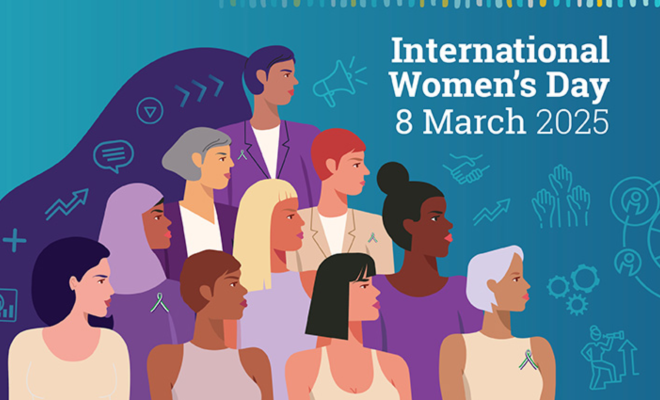For Gender Equality: International Women’s Day, 2025

From March 8, all of us observe International Women’s Day, a day that dares government actions for the betterment of women and girls’ world over. Promotion has been achieved over the past 30 years since the launch of the Beijing Declaration and Platform for Action, but the deep-rooted impacts of inequity still exist. This year’s commemoration is not limited to looking back but committing to action to fulfill Beijing’s promises while transforming our world into one where all prosper.
On March 7, the celebration of the day will be held at the UN General Assembly Hall in NY from 10 a.m. to 11:30 a.m., and those who wish to attend should register before February 28, 2025. The event will also be streamed live at UN WebTV for those unable to attend the events in person.
Celebrating Progress: The Path Forward
The changes bring hope. Today, 89% of governments hold violence against women as a top priority, enacting laws in 193 countries to handle it. Studies suggest that cases of violence decrease when countries implement domestic violence legislation. Gender equality in education has almost been achieved globally, while bridging the gap in science and technology opens myriad avenues for all.
In addition, 32% of countries are creating better care services for care workers, including pay and safer working conditions. For peace and security, 112 countries have set up national plans to include women in conflict resolution—up from only 19 countries in 2010.
On March 8, 2025, IWD under the theme “For ALL women and girls: Rights. Equality. Empowerment.” This theme exhorts specific action to unlock equal rights, power, and opportunities for all, particularly empowering young women and girls as drivers of change.
The Beijing Declaration: A Blueprint for Change

It will be in 2025, 30 years since the declaration that is considered the blueprint for change for women worldwide with the passing into law of the Beijing Declaration that represented 189 governments in 1995 with a comprehensive guide for women’s rights addressing critical concerns, with pertinent sectors such as education, health, maintenance of peace, political participation, economic empowerment, and elimination of violence.
However, with about five years left for the Sustainable Development Goals, the time for action on new issues such as climate justice and newly emerging digital technologies is now.
However, challenges are represented in the advancement of women’s rights by the increasing insecurity and political instability around the globe. In 2022, there were 612 million armed conflict-affected women and girls, from which they endure an increase of an incredible 50% in just 10 years.
Three Crucial Areas Calling for Action under the 2025 Call to Action
Under the auspices of UN Women’s campaign marking the 30th anniversary of the Beijing Declaration, International Women’s Day 2025 calls for action in three key focus areas:
Advance Women’s and Girls’ Rights: Fight for the full range
Progress Since Beijing: A Lasting Impact
The Beijing Declaration has given a radical detour to the global women’s rights agenda. The following are some examples:
- Legal Protection: In 1995, there were very few countries across the world with laws against domestic violence. Only 12 countries had such laws before 1995; today, 193 countries have 1,583 legislative measures, 354 of which target domestic violence specifically.
- Access to Services: The Beijing Platform for Action gave priority to critical services such as shelters, legal aid, and healthcare for survivors of violence. These services have been expanded globally and helped countless women in need.
- Youth Engagement: Young feminists have been networking in digital movements for gender justice and equality, inspired by the Beijing agenda.
- Changing Social Norms: The Beijing agenda ignited worldwide movements to help challenge these stereotypes and develop laws and policies that are gender equal.
- Women’s Role in Peace: The Beijing Platform emphasized the full participation of women in peacebuilding and conflict resolution. Today, 112 countries have National Action Plans on Women, Peace, and Security—up from only 19 since 2010.
However, the hard-won gains for women’s rights are currently under threat, with new global crises seeking to undermine these hard-fought gains. Join UN Women this International Women’s Day to insist that we move forward, not backward. The world can ill afford to lose whatever little progress we have made.



